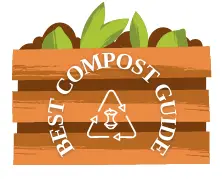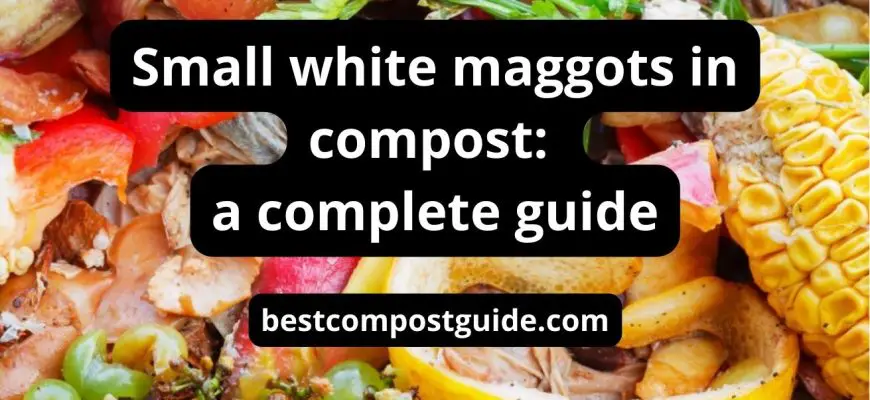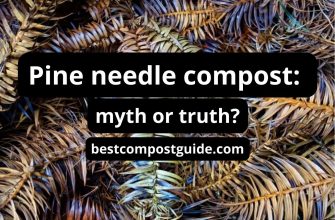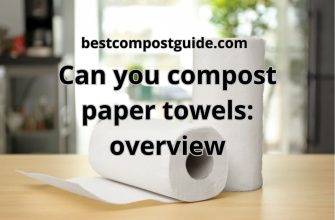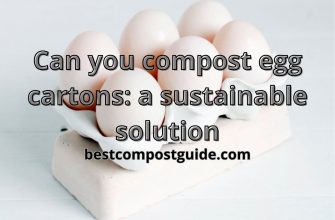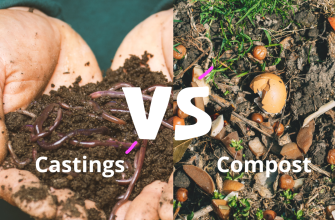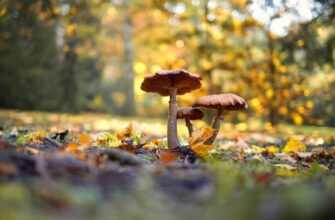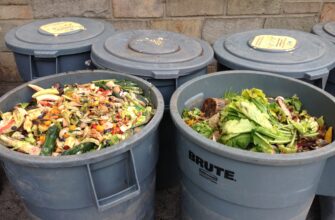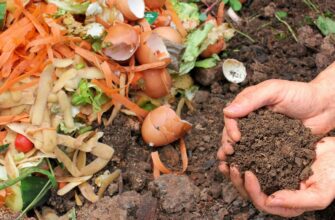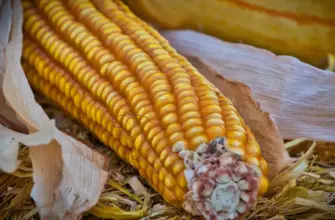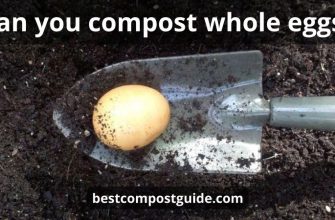Composting is a healthy and environmentally friendly approach to reusing organic waste and producing fertile soil for farming and gardening. However, it’s not unusual to discover little white maggots in a compost pile, which some people may find alarming.
In reality, these maggots are an essential component of the composting process and aid in the decomposition of organic materials.
You may make a thriving compost pile by comprehending the function of maggots in the composting process and learning how to control their presence.
In this article, we’ll talk about white maggots in compost, their advantages, and disadvantages, and will answer the question are maggots bad for the worm farm.
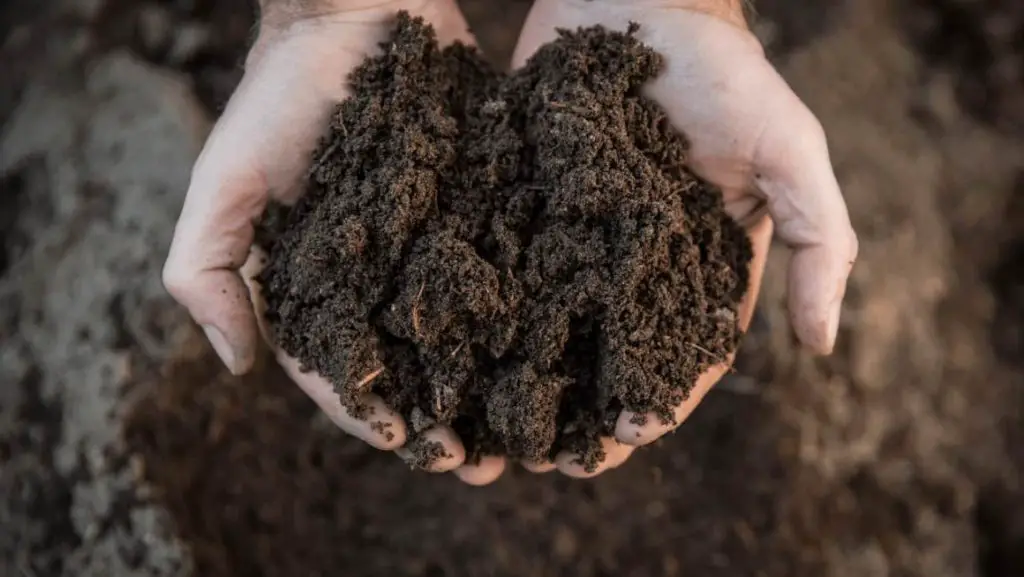
- How to find maggots in compost?
- Observe the compost bin
- Smell the compost bin
- Check for flies
- Use a trowel or shovel
- Advantages of white maggots in compost
- Accelerated decomposition of organic matter
- Enhancement of aeration
- Increase in microbial activity
- More nutrients
- Disadvantages of white maggots in compost
- Unpleasant smell
- Pest attraction
- Overpopulation
- Aesthetics
- How to prevent white maggots in compost?
- Solutions for white maggots’ presence in compost
- FAQ
- What are small white maggots?
- Is it OK for maggots to be in my compost?
- What are the little white worms in my worm bin?
- Conclusion
How to find maggots in compost?
Maggots are bad for the worm farm and they are often visible to the unaided eye, making it quite simple to find them in compost. You can use the following steps to find maggots in your compost bin.
Observe the compost bin
Check the compost bin for any indications of tiny, white, worm-like animals scurrying around it or black soldier fly larvae.
Maggots can also be seen crawling on the compost’s surface or the bin’s sidewalls.
Smell the compost bin
As they decompose organic materials, maggots or fruit flies can leave a detectable stench, so if you notice a bad or unpleasant odor emanating from your compost, it may indicate the presence of black soldier flies.
Check for flies
In a compost bin, fruit flies frequently lay their eggs, which can develop into little white maggots. Look for these eggs. On the compost’s top or the walls of the bin, search for tiny, white eggs about the size of a rice grain.
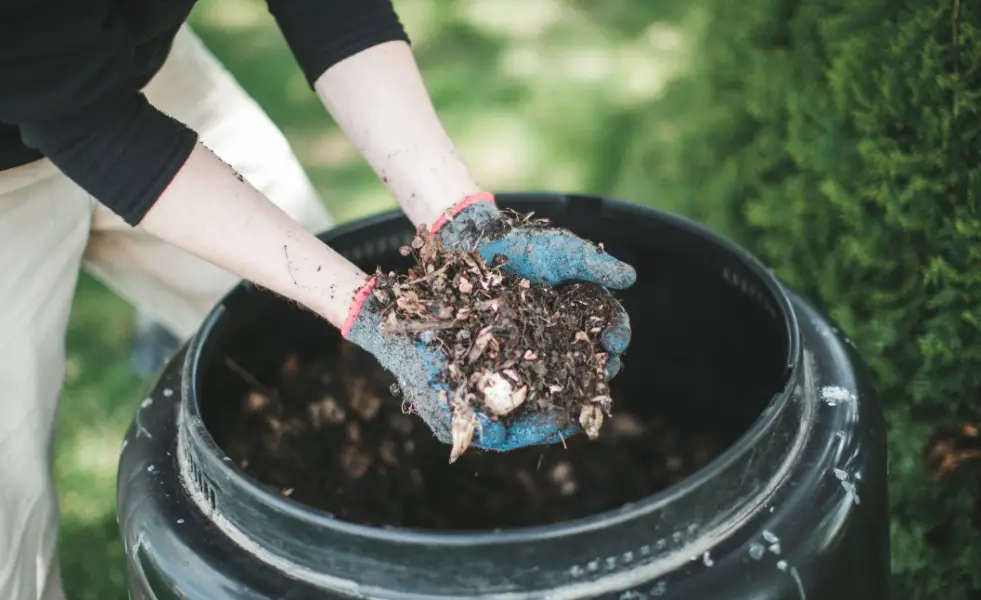
Use a trowel or shovel
Carefully delve into the compost pile using a trowel or shovel if you suspect the presence of maggots but cannot see them. This will make any maggots that could be hidden deeper in the pile more visible.
It’s crucial to remember that maggots are a normal component of composting and can be useful for decomposing organic debris, food scraps like vegetable scraps.
To help reduce the population, you might need to modify the moisture content, the ratio of the various materials, or the management of the compost bin pile if you see an excessive number of maggots or a bad smell emanating from it. This could be an indication of an imbalance in the compost heap.
Advantages of white maggots in compost
A compost bin with tiny white maggots has several benefits for the composting process. Here are a few advantages:
Accelerated decomposition of organic matter
Small white maggots are voracious eaters of food waste and can consume a lot of organic material, such as meat, food scraps, and dairy products, which can be challenging to decompose on their own.
Their feeding activity hastens the decomposition process and produces soil rich in plant nutrients.
Enhancement of aeration
As maggots move through the compost bin, they make air pockets and tunnels that enhance aeration and help keep the compost from being anaerobic (lacking oxygen). As a result, the helpful bacteria that decompose the organic debris live in a better environment.
Increase in microbial activity
Maggots can contribute to an increase in the microbial activity of the compost bin. As they consume food from animal manure and food waste, they exude enzymes that decompose organic matter and boost the diversity and activity of the microbial population.
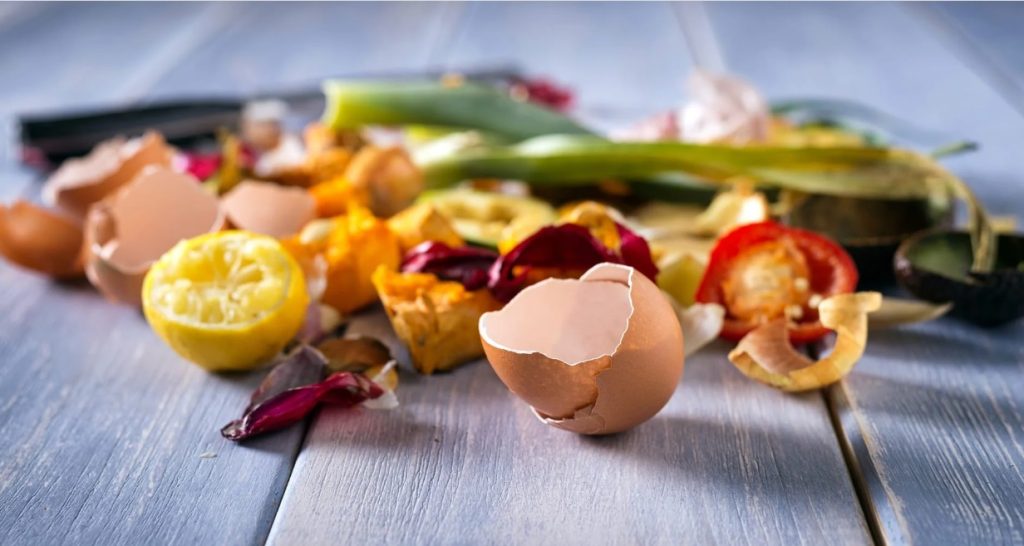
More nutrients
By dissolving complex organic compounds into simpler ones, small white maggots increase the availability of nutrients to plants. As a result, the compost has a higher nutrient content, which may contribute to increased soil fertility and plant growth.
Slugs and snails. Slugs and snails are masters at decomposing organic matter in the compost bin.
In conclusion, adding little white maggots to compost can hasten decomposition, improve aeration, spur microbial activity, and boost the compost’s nutrient content.
Disadvantages of white maggots in compost
There are several advantages to having small white maggots or black soldier flies in compost, but there are also some potential drawbacks to be aware of. Here are a few potential negatives.
Unpleasant smell
As they consume organic material, maggots produce excrement that might have a bad smell. If your town has odor limitations or the compost bin is situated close to residential areas, this could be a problem.
Pest attraction
Maggots may draw rodents and flies like black soldier fly to your compost bin, among other pests. These pests might become a bother if the compost bin is not properly controlled or handled.
Overpopulation
If the maggots are not controlled, they may overrun the compost heap, which could lower the quality of the compost and upset the environment.
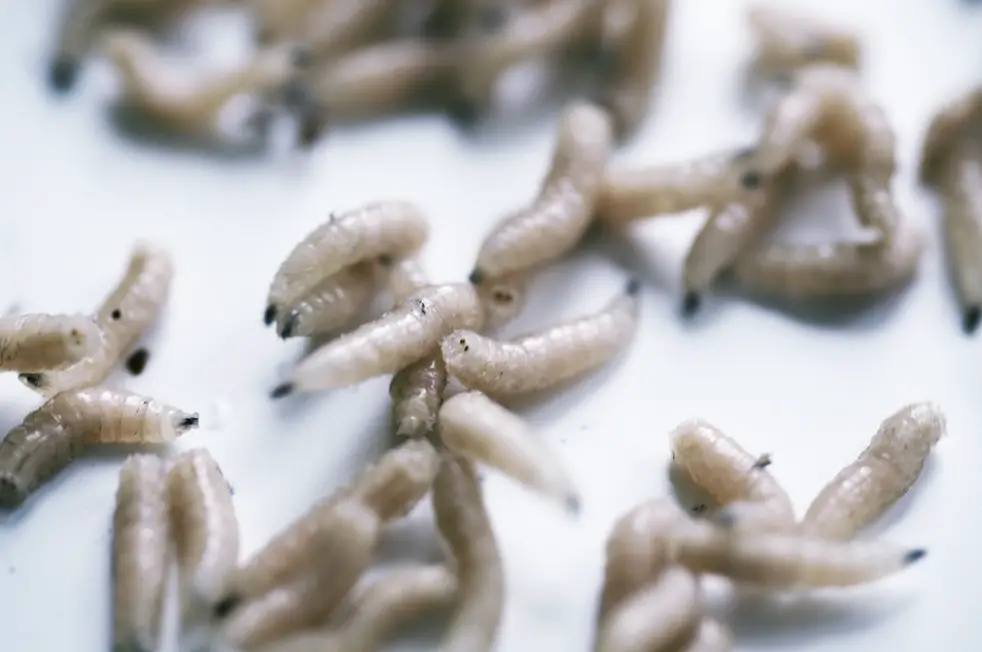
Aesthetics
The sight of maggots in a compost pile may turn some individuals off from composting completely since they find them unattractive or offensive.
It’s crucial to remember that these drawbacks are frequently manageable through proper compost pile management.
For instance, covering the compost pile with a layer of straw or dry leaves can prevent house flies from depositing their eggs there, and stirring the pile regularly can assist to prevent overcrowding and increase aeration.
How to prevent white maggots in compost?
By following a few easy steps to deter house flies from laying their eggs in the compost, fly maggots eggs’ presence in compost can be avoided.
You can take the following actions to keep maggots out of your compost:
- Cover your compost, you may help prevent flies from laying their eggs in your compost by covering it with a lid, a layer of dry leaves, or a straw.
- Avoid meat and dairy items since they can draw flies and increase the danger of maggots in your compost. If you must add these items to your compost pile, bury them deep within the pile.
- Maintain the proper moisture level. Maggots prefer moist surroundings, therefore it’s critical to keep your compost pile at the proper moisture level. Turn the compost pile frequently to increase aeration, and keep it damp but not soggy.
- Use high-carbon items to help balance the moisture level in your compost pile and lower the risk of maggots. High-carbon materials include dried leaves, straws, and newspaper.
- Avoid overfeeding your compost pile, too much organic material added all at once might lead to a damp atmosphere that is ideal for maggot growth.
The organic material should be added in little amounts at a time and thoroughly mixed into the compost pile. In addition, raising wild birds can help in getting rid of worms. You can also add grass clippings to your garden since this grass is unattractive to flies.
You may prevent maggots in your compost and make healthy, nutrient-rich soil for your plants by heeding the advice in this article.
It’s crucial to keep in mind that maggots are a normal component of composting and can help decompose organic matter if you do spot them in your compost.
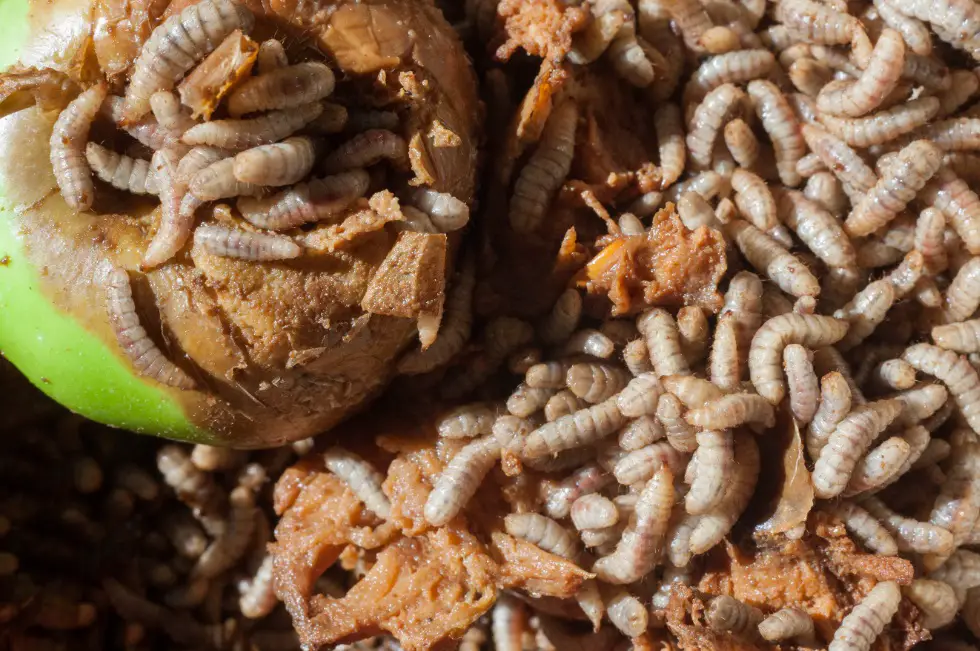
Solutions for white maggots’ presence in compost
If this is the case, you can attempt several remedies to reduce the number of little white maggots in your compost and keep a healthy compost pile.
Here are a few possibilities:
- Reduce moisture. Since tiny white maggots prefer wet surroundings when there is too much moisture, lowering the moisture content of your compost pile may assist to reduce their population.
- To improve aeration, make sure your pile is not too damp and turn it frequently.
- Add carbon-rich materials. Increasing the amount of carbon in your compost pile can assist to balance the moisture content and lower the danger of maggots. Examples of carbon-rich materials are dried leaves, straws, or shredded paper.
- Cover your compost. You may help prevent flies from laying their eggs in your compost by covering it with a lid, a layer of dry leaves, or a straw. In addition, cover the food waste, since it takes a while for the foods to degrade, they will attract flies of various kinds. Avoid meat and dairy items since they can draw flies and increase the danger of maggots in your compost. If you must add these items to your compost pile, bury them deep within the pile.
- Use Bacillus thuringiensis (Bt). Bt is a naturally occurring soil bacteria that can be useful in reducing the number of fly maggots in your compost pile. It can be added to your compost pile by the manufacturer’s directions and is offered in powder or liquid form.
- Use diatomaceous earth to control the number of maggots in your compost pile. Diatomaceous earth is a natural abrasive ingredient. Sprinkle a light coating on top of your compost pile while being careful not to breathe in the dust.
In addition, add Pine Needles Citrus Rinds, and grass clippings to your garden since Maggots are not big fans of bitter and sour flavors.
You may reduce the number of little white maggots in your compost and keep the soil healthy and nutrient-rich for your plants by putting these suggestions into practice.
FAQ
What are small white maggots?
Black soldier fly larvae are commonly referred to as “maggots.” There are thousands of different kinds of flies, and many of them breed on compost and other organic debris that has begun to decompose because it will attract flies.
Fly babies resemble red worms and are segmented and dingy in color. They frequently gather in groups and wiggle constantly, which makes us squirm whenever we see them.
The flies that produce the black soldier fly larvae that we most frequently find in compost bins are house flies, black soldier flies, fungus gnats, and fruit flies (fruit flies are tiny and may go overlooked).
These maggots and fungus gnats adore damp areas with lots of edible organic stuff.
Additionally, fungus gnats can be seen buzzing around compost bins and carrying maggots or black soldier fly larvae, albeit ones that are too small to view.
Nevertheless, they will receive an honorable mention given their prevalence and significance.
Is it OK for maggots to be in my compost?
Maggots are, in fact, entirely typical and even useful when they are in compost. Fly larvae, or maggots, are crucial to the process of decomposition because they break down organic matter and transform it into nutrient-rich soil.
When composting meat, dairy, and other animal products of food waste — which can be challenging to decompose without their help — maggots or red wiggler worms can be very helpful.
To prevent flies from depositing their eggs in the compost, try covering the food scraps with a layer of dry leaves or straw if you are unhappy with the presence of maggots or red worms in your compost.
Although maggots are usually not a problem, they might occasionally be a symptom of an unbalanced or excessively wet compost pile.
You may want to change the composition of your compost by adding more dry materials or turning the pile regularly to increase aeration if you find an especially high number of maggots.
What are the little white worms in my worm bin?
One of two worm species — pot worms or white worms — could be the tiny white worms you occasionally notice in your worm bin.
Small, white, thread-like pot worms are typical in worm bins. They are safe for worms to eat and may even help the process of compost.
In the bin, bacteria, and fungi are consumed by pot worms, which aid in the decomposition of organic materials and the creation of a nutrient-rich habitat for your compost.
In contrast, white worms are bigger and more active than pot worms. They resemble pot worms in appearance and are likewise white, but they differ from them in that they have a pointed head and a thicker body.
White worms and black soldier flies can also help compost, but they occasionally face competition for food from red wigglers, the most popular kind of composting worm.
White worms and black soldier flies are both signs of a healthy, properly stocked worm bin. If you see a lot of either kind of worm, though, it might be an indication that the bin is too damp, too acidic, or that there isn’t enough food for the worms. In this situation, you could wish to change the moisture content, the bin’s balance, or add more worm food.
Conclusion
It’s normal and unadventurous to see tiny white maggots in your compost; there’s no need to be concerned. As they aid in the breakdown of organic matter and the creation of nutrient-rich soil, these maggots are advantageous to the process of compost.
In addition, you can take steps to prevent flies from laying their eggs and to enhance the balance of your compost pile, though, if the presence of maggots in your compost makes you uncomfortable.
Understanding the function of maggots in the process of composting and following the necessary precautions to maintain a healthy compost help you build a thriving ecosystem that is good for the environment and your garden.
